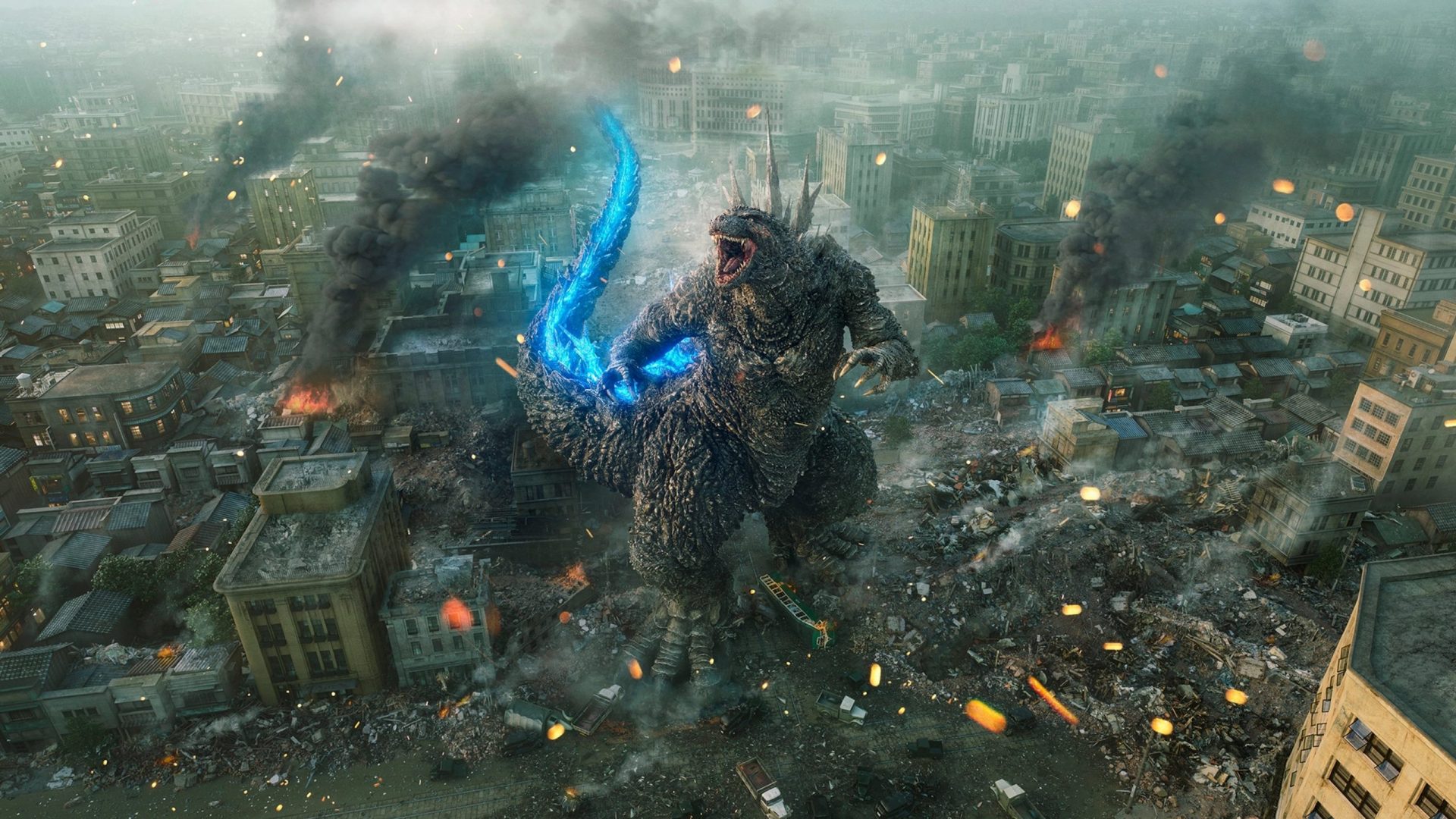The smoke clears. The dust settles. For one, brief moment, it seems as though the stillness of the air could be a tranquil silence. A peaceful rearrangement of particles. That rare alignment of the cosmos that grants those most rare moments of serenity, where the world is in harmony, and the forces of nature and man align. But then, the moment passes. As your gaze trails ever upwards, your eyes slowly taking in the sight in front of you. Slowly, so that your brain has time to process the signals being sent to it. To try to make sense of this scaly monolith. This prehistoric behemoth. This harbinger of death.
Godzilla.
For everything there is a season, and for every generation there is a Godzilla. Luckily for us, Godzilla Minus One (like its most recent predecessor, Shin Godzilla) has emerged as a unique voice, shepherding both us and its protagonist into a new golden age. Unlike the recent spate of Hollywood Godzilla-verse offerings, which are, at best, popcorn flicks, Godzilla Minus One delivers not only on the action (which, again, unlike its Hollywood counterparts, is clearly lit and easy to follow) but also on the social allegory (which is woefully absent from his current incarnation in Hollywood. Under the careful watch of Toho, the studio that has curated the story of everybody’s favourite giant lizard for nearly 70 years, Godzilla Minus One at once takes Godzilla in a bold and engaging new direction while remaining true and paying homage to a long and rich cinematic history.
Originally a metaphor for the horrors of nuclear war, Godzilla turned out to be an unexpected entry into the pantheon of Japanese cinema that tried to make sense of the destruction and death that marked the end of World War II. Since then, Godzilla has been reimagined and reborn time and time again, as a campy kaiju combatant, a gargantuan anti-hero protecting the people of earth from threats even larger than himself, a horror icon on par with Dracula or Frakenstein, a literal larger-than-life action star, and full circle to as a metaphor to explore the social impact of new horrors and catastrophes in a way that can only be achieved with the help of a lizard the size of a skyscraper.
As portrayed in Godzilla Minus One, Godzilla is at once a stunning metaphor for the unique horrors wrought by a nuclear war but also as a powerful symbol that forces the human characters to confront issues of heroism, sacrifice, the value of human life, the failures of leadership, and what it means to reckon not only with putting their lives back together after a devastating war, especially dealing with the residual guilt and shame of being on the losing side of a war. The more sobering truth, of course, is that war has no winners, only survivors. But Godzilla Minus One uses the subsequent attack (with Godzilla’s “heat ray” perhaps the most terrifying it has ever appeared on screen, directly evoking images of nuclear holocaust) to explore how survivors of a war, both veterans and civilians, process their trauma and grief and try to make sense of the bloodshed and chaos in a movie that is at once thrilling as it is contemplative and philosophical.
So listen in as your intrepid hosts explore Godzilla Minus One, the latest movie in a series so long-lived and resilient that it’s rivaled only by good old 007 himself, James Bond. Whether you’re new to the Godzilla phenomenon or you’ve been a fan since the beginning, we hope you’ll enjoy our usual level of insight as we discuss Godzilla Minus One.
Godzilla Minus One (2023)
directed by: Takashi Yamazaki
starring: Ryunosuke Kamiki – Hidetaka Yoshioka – Minami Hamabe – Kuranosuke Sasaki
Horror – Action – Science Fiction
125 min
